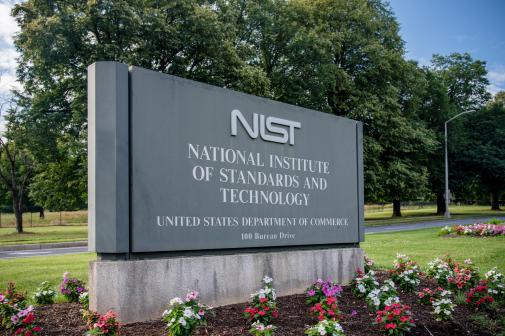Mary Ellen Condon, a founding member of the federal CIO Council who’s held multiple government and private sector IT positions, is taking over as executive director of the Identity Ecosystem Steering Group, the private sector-led organization tasked with developing policies and standards for trusted online identities.
IDESG was established in 2012 by a two-year grant from the National Institute of Standards and Technology. Its mission is to develop policies, standards and accreditation processes for an Identity Ecosystem Framework, as called for by the National Strategy for Trusted Identities in Cyberspace, signed in 2011 by President Barack Obama.
NSTIC efforts focus on finding ways to replace passwords as the primary method of verifying identity in online transactions. The goal is to create an online identity ecosystem made up of multiple identity providers and digital credentials that can be used for everything from applying for a mortgage to electronic health records and online shopping.
Condon will replace Kay Chopard Cohen, who is leaving to take a position with the National District Attorneys Association.
Condon has spent the last 15 years in the private sector, working in information security at Booz Allen Hamilton, identity management and credentialing at SRA International, and most recently as a private consultant at Condon Associates LLC. She left government in 1999 after a five-year stint as the director of the Justice Department’s Office of Information Management and Security.
“I am excited about the opportunity to work with IDESG, the private sector/government collaboration initiative to foster an environment where confidence in online transactions is the norm, and security and privacy of those transactions are understood,” Condon said, in an email to FedScoop. “I believe the current business and use challenges are creating the ‘perfect storm’ to gain support for this vary important initiative, and I’m looking forward to moving it forward.”
Condon’s appointment comes as IDESG begins to transition out of the initial two-year federal grant period to become a self-sustaining organization as an incorporated nonprofit. NIST awarded the initial grant in 2012 to Trusted Federal Systems Inc. to serve as the administrative agent for the effort. But the next round of funding will serve a different purpose, according Jeremy Grant, director of NSTIC’s national program office.
“Our intention is to award a follow-on cooperative agreement from the government to IDESG Inc.,” Grant said, speaking April 1 at IDESG’s 8th Plenary meeting. Grant said the money will be earmarked to support back-end infrastructure “to keep the lights on,” as well as stand up a formal management office, hire technical experts and conduct outreach to recruit new members into IDESG.
“We’re working to ensure the new stream of funding is in place by July 1,” Grant said.
To date, NSTIC has funded 12 pilot projects totaling more than $20 million. The deadline for applying for the 2014 pilot project grants closed in March. Up to $6 million is expected to be available for grants this year, with awards ranging from $1.2 million to $2 million.
“We received 42 applications, and … we selected eight of them as finalists for the last round,” Grant said. “We expect to make a few new pilot awards in September. Pilots represent the best way to take the ideas encompassed in the NSTIC and test them out.”
NIST plans to host the 9th Plenary meeting of IDESG in June at its headquarters in Gaithersburg, Md.







